In the global political stock market, there is no stock as low as Russia’s at this current moment. An unwarranted invasion on Ukraine since 24 February, a ruler deemed a kleptocrat by many, a plethora of sanctions by the West, most experts would agree that it would be imprudent for any country to invest in Russia at the moment.
Nevertheless, Russia has been, and continues to be, a pillar of influence in the East, with strategic cooperation and joint project deals taking place in recent history – Egypt being one of the many countries to have benefited from a bolstered alliance with Putin over the past decade.
With sanctions increasing and alliances decreasing, one might raise the question of should Egypt should reassess its ties with Russia amidst the sensitivity of the ongoing crisis. As with every aspect of diplomacy, the solution is not binary. In order to see how Egypt treads this diplomatic minefield, one must look into the historical context of Egypt and Russia’s relations.
Finding context through history
As jubilant crowds lined along Aswan’s Nile banks cheered on, Egypt’s Gamal Abdel Nasser and Soviet leader Nikita Khrushchev threw engraved granite rocks into the river as a part of a ceremonial event in 1964. It was the first joint megaproject of its kind, in Egypt, and a historic hint towards a future firm alliance between the two countries.
That megaproject would be known as the Aswan High Dam, marking the beginning of a long-lasting relationship between the two countries.
In the years that would follow, Egypt would further strengthen its alliance with the Soviet Union. An alliance of convenience was also considered greatly between the two, as both states aligned to the same system of rule, nationalism, and disdain for Western involvement in the East.
Months prior, Egypt had initially planned to construct the dam in cooperation with the United States. However, an Egyptian recognition of Communist China created tension between the two parties. This caused the deal to fall through and for the Soviet Union to seize the opportunity.
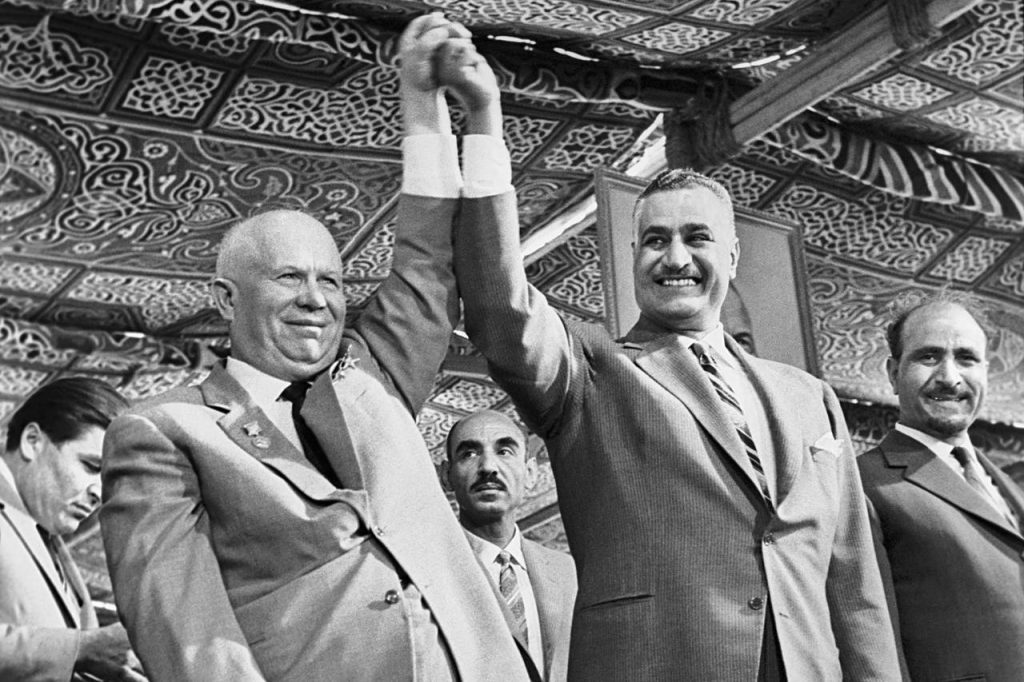
Image credit: TASS Media
A post-Nasser era saw a revival of relations with the United States as Egypt began to favor a balanced and non-provocative diplomatic position. Nasser’s successor, Anwar Al Sadat, would transform Egypt into a proponent of capitalism instead of statism – creating a long-lasting strain between the Soviets and Egypt.
“My relations with the Soviet Union are very highly strained, to this day,” said Sadat in an interview with the Associated Press in 1977. Tensions in the relationship would remain until the fall of the Soviet Union.
The dissolution of the Soviet Union into Russia helped both revive and modernize its association with Egypt. As Russia hoped to revitalize its economy, it sought to rekindle economic relations with previous allies.
Putin would then come to meet with Hosni Mubarak, Egypt’s president from 1981 to 2011, to discuss potential joint projects, as mirrored by their predecessors in the 20th century. In fact, Putin’s desires for a nuclear power plant in Egypt can be traced back to 2008. However, the signed agreement never took off.
On the other hand, the Al-Sisi era of Egypt has taken immense steps in increasing implemental strategic cooperation.
The Al-Sisi Years
Over the past decade, ties between Egypt and Russia have only grown stronger. The goodwill between presidents Abdel Fattah Al-Sisi and Vladimir Putin plays a pivotal part in enhancing economic ties between the two countries.
Upon Al-Sisi’s election victory, Putin was the first leader to call and congratulate. The fruition of this newly elevated alliance culminated in the construction of joint projects: the Dabaa Nuclear Power Station and the Russian Industrial Zone in the Suez Canal.
The construction of the Dabaa Nuclear Power Station, an ambitious project worth at least USD 26 billion, is set to complete around July 2022. Alternatively, the Russian Industrial Zone, which is located in the Suez Canal Economic Zone, is expected to begin construction in 2022.
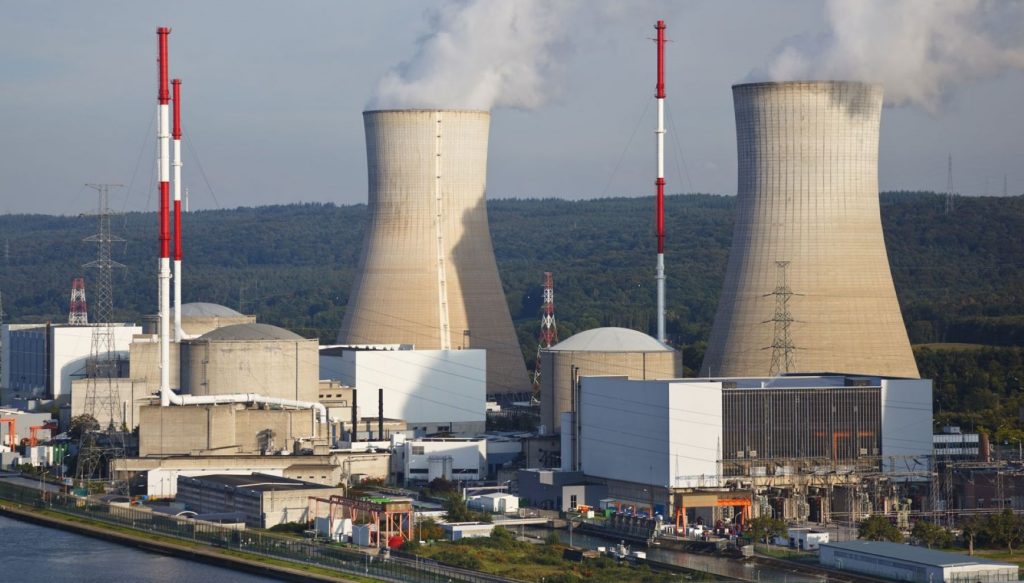
Image Credit: Sabbour Consulting Official Site
Russia’s support of Egypt in such projects mirrors its own interests in nuclear power and regional influence. Fundamentally, it is to Russia’s benefit to both boost an ally and maintain influence in the region. One could see similar traces of such keenness in a project like the Aswan High Dam.
Economic cooperation aside, there remains a shared convenience for Egypt and Russia on a diplomatic level. Shared stances on global political issues such as the Syrian crisis and Egypt’s war on terrorism in Sinai are among the topics Al-Sisi’s cabinet and Putin’s cabinet supported shoulder to shoulder.
Yet, from the recent invasion of Ukraine, decades of cooperation and planned projects are seeing a threat in their execution. The war, dragging with it worldwide condemnation, is a test to Egypt on a diplomatic position, as it now attempts to walk a tightrope out of the firing line.
Assessing the future through the past
On 2 March, 141 countries in the United Nations General Assembly voted for the resolution demanding an immediate halt to the Russian offensive in Ukraine. Egypt was among them.
A week later, on 9 March, Al-Sisi discussed bilateral relations on the phone with his Russian counterpart, Putin.
As reported on the Presidential website, Al-Sisi first discussed and exchanged views with Putin regarding the ongoing war in Ukraine. He emphasized the necessity for dialogue between both states to be the main tool for a peaceful resolution.
In Russia’s defense, the Kremlin Spokesperson stated that “Putin spoke about the reasons and goals of the Russian special military operation to protect Donbass, and informed him about Russia’s ongoing work at negotiations with Ukrainian representatives.”
The phone conversation between the two would proceed to also tackle future endeavors between Egypt and Russia – primarily on matters regarding joint developmental projects and enhancing frameworks for strategic cooperation. This would be the first call between the two leaders since the outset of the war.
However, Al-Sisi was quick to highlight Russia’s long-lasting history with Egypt – indicating the extent to which Egypt values its history with Russia.
Similarly, the Russian Embassy in Egypt was quick to highlight in an official Facebook post that Russia had always stood in defense of Egypt, especially against Western propaganda. Screenshots of old news headlines indicating the West’s past aggression towards Egypt and Russia’s support of Egypt were also attached to the post.
“Some things never change…Western propaganda is not excluded from this. Yet history reminds us of the truth. The truth is with [Egypt and Russia].”
“The two leaders underscored the strength of the historic and robust cooperation relations between Egypt and Russia in various fields, in addition to the friendship between the two countries at both the official and popular levels,” said Presidential Spokesperson Bassam Radi in a press statement on 9 March.
While the common saying that history tends to repeat itself may ring true, one needs to only look at the past to realize that the Egypt of today is far different from the Egypt of the 20th century.
A more modern Egypt seeks balanced diplomacy and stability in bilateral relations; with both the West and East. A West versus East narrative may remain from the past of the 20th century, yet, Egypt aims to peacefully hold the stick from the middle.




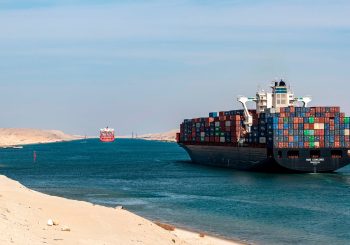
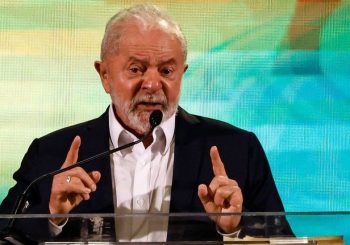
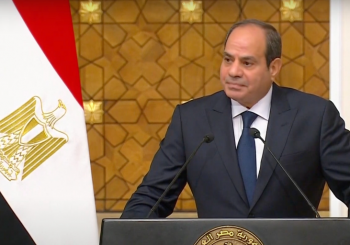
Comment (1)
[…] and Russia have a long history of strategic ties and mutual cooperation in multiple fields. Egypt is Russia’s biggest wheat […]